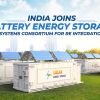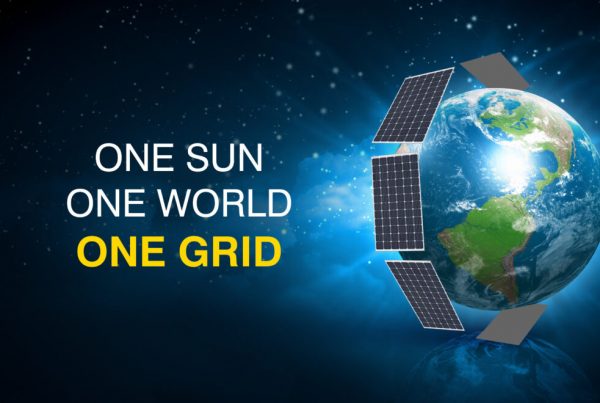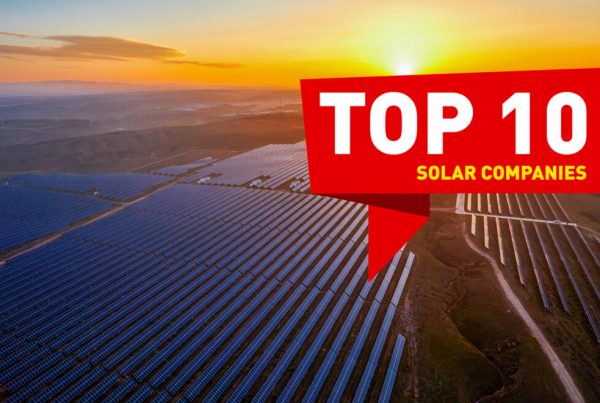Solar power has emerged as a viable alternative to traditional sources of energy, thereby enabling countries to strike a proper balance between energy security, economic development, and environmental sustainability. The solar energy industry is currently driven by Solar Photovoltaic (PV) technology and is set to change the dynamics of energy production and consumption across the world.
For sustained economic development, it is critical for a country to have a large chunk of clean power in its energy mix. India has been a trendsetter in the adoption of solar energy, with a tremendous increase in solar capacity over the years, helping minimize its carbon footprint as the globe advances toward sustainable growth. Aided by favourable government policies, lower prices, and higher demand, India’s installed solar capacity today stands at 48.5 GW from just 10 MW in 2010.
Solar Energy Capacity Target by Top 10 Solar Energy Companies in India
India has set a target of about 500 gigawatts of renewable energy capacity by 2030, of which about 280 GW (over 60%) – would be generated through solar PV technology. In other words, 25 GW of solar energy capacity has to be added every year for the next 10 years to achieve this target. Such favourable policies from the government have opened up a plethora of opportunities for solar component manufacturing in India, especially solar panels / solar modules, which constitute around 60% of the cost of a solar installation.
Apart from the boost in PV module and component manufacturing, this has led to substantial business opportunities for innovative solar products like solar kits and solar developers and solar EPC companies in the country.
Goal of Top 10 Solar Energy Companies in India
The manufacturing of solar panels is a highly technical and complex process that involves multiple stakeholders both within an organization and outside. It requires optimum coordination among various departments and a committed workforce to achieve the collective goal of being among top 10 solar energy companies in India. Listed below are some of the areas which an organization can work upon to enhance its business prospects and make them reach in the list of top 10 solar energy companies in India :
-
Having the right people for the right job
It is people who run businesses, and having the right team is crucial for the success of any organization. Each and every employee should share the company’s core values and feel a sense of ownership over their position. At the same time, the person should be qualified enough to fulfill the demands of the role. While an accurate job description is a key to hiring the right person, it is equally important to identify behaviours, qualities, and skills that will bring value to the team. Thus, it is critical to have the right people for right job if a company wants itself in the list of top 10 solar energy companies in India.
-
Automation & technology for Lean manufacturing practices
Solar module manufacturing is a complex business where scale of operations plays a significant role in plant productivity and impacts a module’s final costing. As the production capacity is increased to achieve economies of scale, these more extensive solar PV panel manufacturing facilities require automated processes that help in increasing production efficiency. Automation will help maximize output at each production stage, thereby helping meet the ever-increasing demand.
Automated PV module production also enables higher accuracy by eliminating human error while ensuring a high-quality final product. In addition, automation helps reduce manufacturing costs by drastically reducing the workforce requirement as compared to a manual solar plant. Thus paving the way for being among the top 10 solar energy companies in India.
-
Supply Chain Management
Procurement of raw materials like Solar cells, Solar glass, cell connectors, string connectors, EVA Sheet, Frames, Junction boxes, Cables, Bypass diode, Adhesives, etc., has an increasingly critical role to play in the cost-competitiveness of the end product. It is the responsibility of the supply chain team to ensure an increase in supply chain resiliency, reduce operational costs, mitigate market risks, increase supplier competition and deliver enterprise-wide cost reductions.
-
Testing and Quality Management
Typically, the usable period of a Solar PV module is over 25 years, as covered under performance warranty. Thus, it is critical to ensure good quality of components and a robust manufacturing process are used. A comprehensive Quality assurance inspection process has to be put into action, which includes the following four stages:
- Pre Production Audit
- Incoming Material Inspection
- In-Process Inspection
- Pre-Shipment Inspection
The first three steps of Pre-production, Incoming Material, and In-process inspection can be clubbed under manufacturing process inspection. In contrast, the Pre-shipment inspection is the final inspection of the manufactured modules, where randomly selected samples are performance tested as per the set standards.
-
Marketing mix of Solar PV modules (4 Ps)
Today, solar module manufacturing is a lucrative business opportunity, especially with favourable Govt. policies like ‘Make In India’, Aatmanirbhar Bharat, PLI schemes, etc. This positivity in the market has led to the emergence of several new players, resulting in increased competition. While installing solar power is a win-win for customers, suppliers and manufacturers, sustained and focussed marketing efforts is a must to stand out among the competition.
Solar PV panel marketing mix is a combination of product feature, price, place & promotion, which helps formulate strategies for establishing the product in the market.
- Product: Solar PV panels are the critical component of every solar installation. It is therefore imperative to provide a high-quality offering to the clients. Especially with 25 years of performance warranty, there can be no compromises made when it comes to the solar panels’ robustness, durability, and efficiency. All necessary testing and certifications have to be present to earn the customers’ trust.
- Price: Pricing of solar modules is a challenging proposition, especially due to fluctuating raw materials prices. However, today there are multiple financing options, both by government and private financial intuitions, that the customer can avail. The need of the hour is to make the prospective customers aware of these schemes and the benefits of going solar.
- Place: The place is the channel through which solar PV modules would be made available to prospective customers. Typically these would be the installers, developers, or suppliers. While bulk orders can be serviced ex-factory for MSME and residential customers, building a strong supplier network is critical in keeping up with rising demand. A robust supplier network would ensure that customers have easy access to the products and services.
- Promotion: There have been various incentive schemes have been launched by the government to promote the adoption of solar energy among the masses. Using the right communications and promotional strategies, the focus should be to promote solar energy while ensuring that the right messages are presented to the end-user. This will in turn help build a stronger market for Solar Power
- After-sales service: Proactive and diligent after-sales service is a key to achieving customer satisfaction and customer retention. It helps build loyal customers and also enhances the goodwill of a brand. In the long run, a satisfied and happy customer brings repeat business and referral business, thereby contributing to more revenues for the organization.
Mentioned above were some broad pointers on how a solar PV manufacturing company can become top 10 solar energy companies in India. While the list might not be exhaustive, it surely highlights some of the basics that a company adopts to strengthen its business operations and become a leader in its space.








